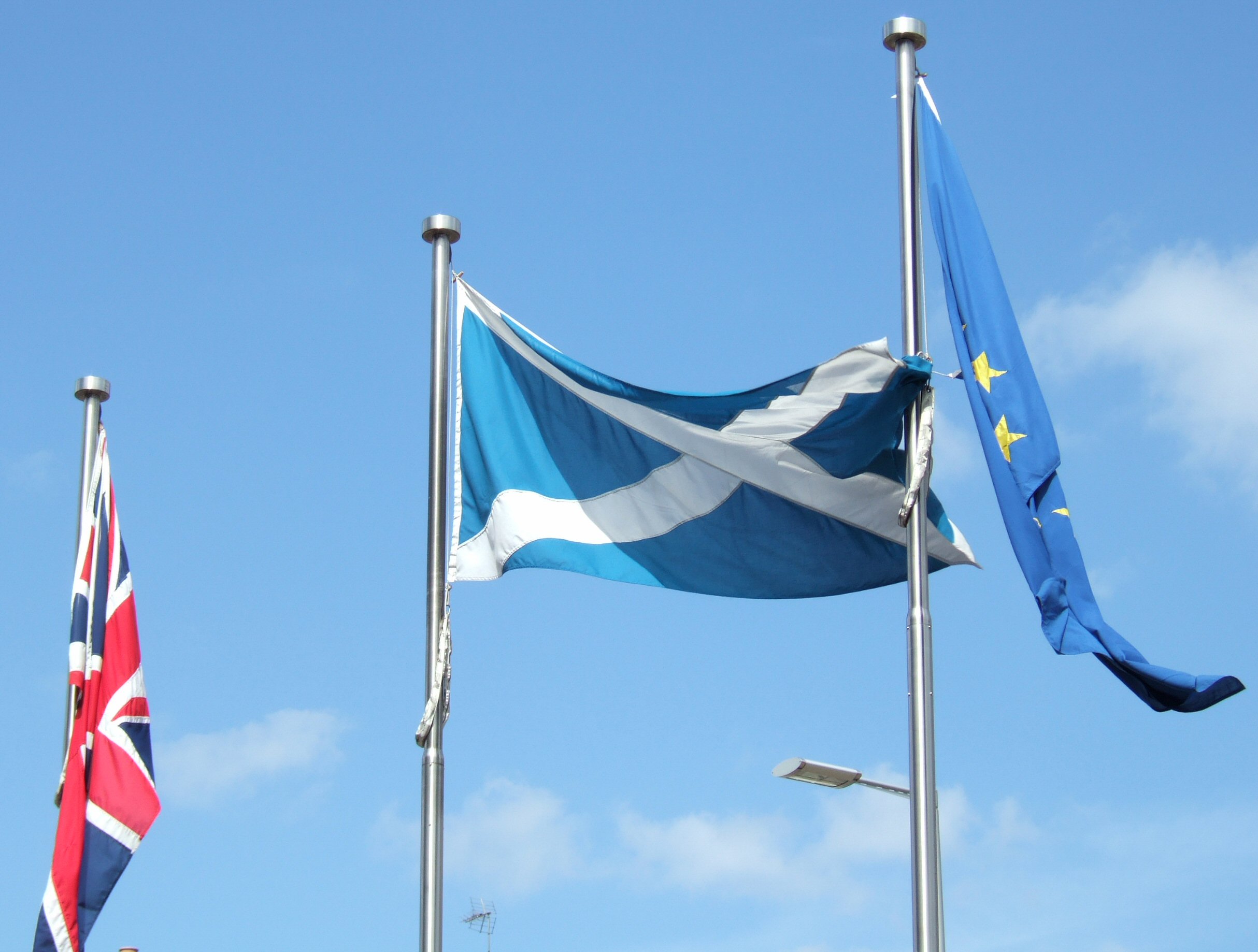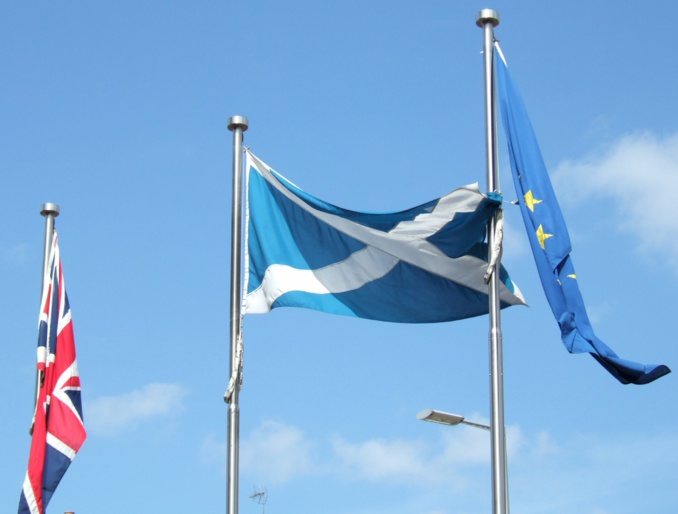Brussels was visited by Scottish Minister of Foreign Relations Fiona Hyslop and Michael Russell, responsible for " Scotland’s future place in Europe." Yesterday, the ministers held a series of briefings and meetings, in particular with MEPs and other EU institutions as well as with representatives of the Scottish diaspora.
On the eve of the trip, Mr. Russell promised to tell his interlocutors about latest proposals of Nicola Sturgeon, leader of the Scottish National Party (SNP) and Head of Regional Government. October 13, she said that she "instructed the government to prepare a draft bill for a new referendum" on secession from Britain. According to Ms. Sturgeon, the vote will be held if independence will be "the best or only way to protect Scotland". The bill on principles and modalities of the new referendum will be published in the coming days.
Scotland held the first referendum on independence in September 2014. Then, 55% of voters supported decision to remain part of the Kingdom. At the same time, regional authorities acknowledged that this outcome was not subject to review, at least for the foreseeable future. However, since Brexit became inevitable, Edinburgh started to talk about the second attempt to gain independence. The reason for this was that only 38% inhabitants of Scotland supported the "leave" option.
Authorities in Scotland explain their desire to remain in the European Union primarily by economic reasons. According to a study of the University of Strathclyde (Glasgow), "Hard landing" of Brexit, implying loss of access to the EU common market, threatens Scotland with risk to lose 80 thousand jobs, and the average annual income of the population can be reduced to £ 2 thousand. However, the authorities in Britain also want the country to remain part of the European market. Prime Minister Theresa May said that her government hopes to maintain close ties with the EU.
According to Ms. May, Britain will officially launch the procedure of exit from the European Union no later than March 2017. After that, London will have two years to complete the negotiations. Therefore, Scotland has two years to hold a referendum on secession from the UK. "In the case of separation, we could build our economy, pursue a consistent policy that reflects our values and our desire to develop our language and culture, as well as give priority to health, education and the environment. We cannot fulfill our expectations while we are controlled by right radical government in London," - said member of the House of Commons Paul Monaghan (SNP). He also added that becoming independent Scotland would take sixth place in the list of the richest countries in the world per capita, as it possesses huge reserves of oil, gas and minerals.
source: bbc.com
On the eve of the trip, Mr. Russell promised to tell his interlocutors about latest proposals of Nicola Sturgeon, leader of the Scottish National Party (SNP) and Head of Regional Government. October 13, she said that she "instructed the government to prepare a draft bill for a new referendum" on secession from Britain. According to Ms. Sturgeon, the vote will be held if independence will be "the best or only way to protect Scotland". The bill on principles and modalities of the new referendum will be published in the coming days.
Scotland held the first referendum on independence in September 2014. Then, 55% of voters supported decision to remain part of the Kingdom. At the same time, regional authorities acknowledged that this outcome was not subject to review, at least for the foreseeable future. However, since Brexit became inevitable, Edinburgh started to talk about the second attempt to gain independence. The reason for this was that only 38% inhabitants of Scotland supported the "leave" option.
Authorities in Scotland explain their desire to remain in the European Union primarily by economic reasons. According to a study of the University of Strathclyde (Glasgow), "Hard landing" of Brexit, implying loss of access to the EU common market, threatens Scotland with risk to lose 80 thousand jobs, and the average annual income of the population can be reduced to £ 2 thousand. However, the authorities in Britain also want the country to remain part of the European market. Prime Minister Theresa May said that her government hopes to maintain close ties with the EU.
According to Ms. May, Britain will officially launch the procedure of exit from the European Union no later than March 2017. After that, London will have two years to complete the negotiations. Therefore, Scotland has two years to hold a referendum on secession from the UK. "In the case of separation, we could build our economy, pursue a consistent policy that reflects our values and our desire to develop our language and culture, as well as give priority to health, education and the environment. We cannot fulfill our expectations while we are controlled by right radical government in London," - said member of the House of Commons Paul Monaghan (SNP). He also added that becoming independent Scotland would take sixth place in the list of the richest countries in the world per capita, as it possesses huge reserves of oil, gas and minerals.
source: bbc.com



















